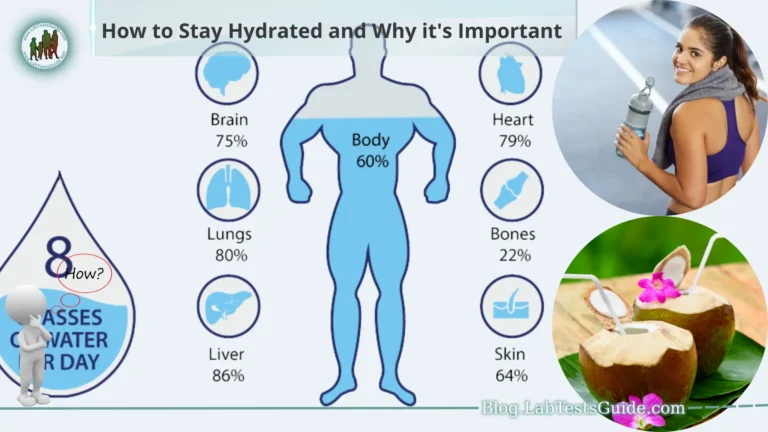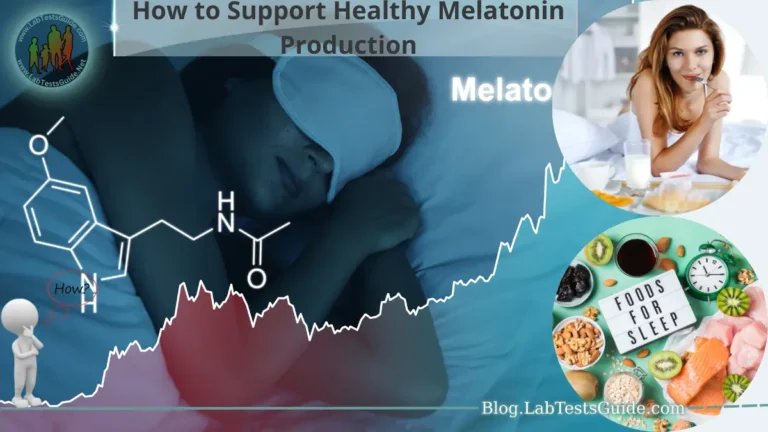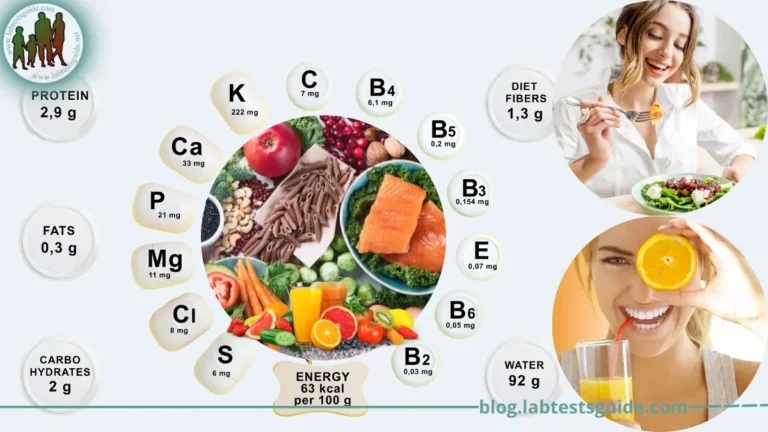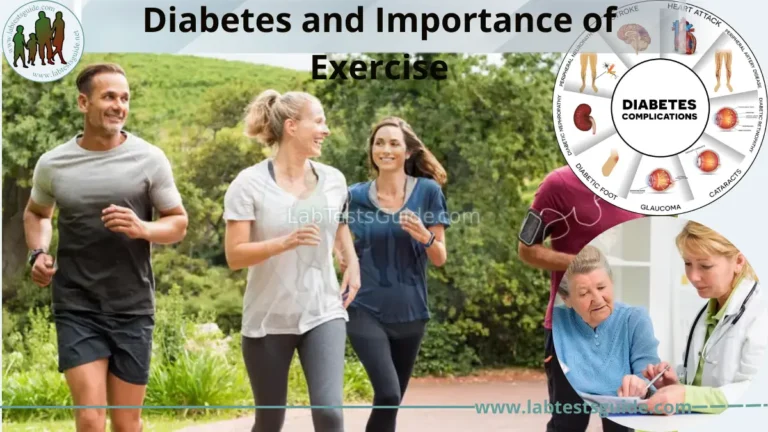The liver is a vital organ responsible for a multitude of essential functions in the body, including detoxification, metabolism, and nutrient storage. As the body’s primary detoxifier, the liver plays a crucial role in filtering and eliminating harmful substances, such as toxins and waste products, from our bloodstream.

Improve liver function and detoxification is essential for overall health. To support your liver, maintain a balanced diet rich in fruits, vegetables, and whole grains while limiting processed foods and alcohol intake. Stay hydrated and engage in regular exercise to boost blood circulation. Avoid smoking and manage stress through relaxation techniques. Adequate sleep and weight management are also crucial. Consider herbal supplements like milk thistle, but consult a healthcare professional before use. Regular check-ups and vaccinations for hepatitis can further safeguard your liver’s health. By adopting these lifestyle changes, you can enhance your liver’s function and promote overall well-being.
What Is Liver Function and Detoxification?
- Liver Function: The liver is the largest internal organ in the human body and performs a wide range of vital functions. Some of its primary roles include.
- Metabolism: The liver helps regulate carbohydrate, protein, and fat metabolism, playing a crucial role in maintaining energy balance.
- Bile Production: It produces bile, which aids in the digestion and absorption of fats in the small intestine.
- Nutrient Storage: The liver stores essential nutrients like vitamins and minerals, releasing them when the body needs them.
- Synthesis of Proteins: It synthesizes important proteins, including those involved in blood clotting and immune function.
- Detoxification: The liver filters and breaks down toxins, drugs, and other harmful substances from the blood.
- Detoxification Process: Liver detoxification is a vital process that involves neutralizing and eliminating toxins and waste products from the body. The two main phases of detoxification are.
- Phase I: In this phase, enzymes in the liver start to metabolize toxins and convert them into intermediate forms. These intermediate products can sometimes be more toxic than the original substances.
- Phase II: In this phase, the intermediate products from Phase I are further processed and conjugated with other substances, making them water-soluble and easily excreted from the body through bile or urine.
- Importance of Liver Detoxification: Efficient liver detoxification is essential for maintaining overall health and preventing various health issues. If the detoxification process is impaired, toxins can accumulate in the body, leading to oxidative stress, inflammation, and potential damage to organs and tissues.
- Supporting Liver Function and Detoxification: Several lifestyle practices can help improve liver function and support its detoxification processes, including.
- Consuming a balanced diet rich in fruits, vegetables, whole grains, and lean proteins.
- Drinking plenty of water to stay hydrated and aid in toxin elimination.
- Regular exercise, which can enhance liver health and metabolism.
- Reducing alcohol consumption and avoiding tobacco and recreational drugs.
- Managing stress effectively, as chronic stress can negatively impact liver function.
How to Improve Liver Function and Detoxification:
Here are some effective ways to support and enhance your liver’s function and detoxification processes.
Adopt a Balanced Diet:
- Include plenty of fruits, vegetables, whole grains, and lean proteins in your diet.
- Consume foods rich in antioxidants, such as berries, green leafy vegetables, and nuts, to help protect the liver from oxidative stress.
- Limit processed foods, sugary snacks, and saturated fats, as they can contribute to liver damage and fatty liver disease.
Stay Hydrated:
- Drink an adequate amount of water daily to support proper detoxification and maintain optimal liver function.
- Water helps flush out toxins and waste products from the body, promoting a healthy liver.
Engage in Regular Exercise:
- Regular physical activity can help improve liver health by promoting blood circulation and metabolism.
- Aim for at least 150 minutes of moderate-intensity exercise or 75 minutes of vigorous-intensity exercise per week.
Maintain a Healthy Weight:
- Obesity and excess body weight can lead to fatty liver disease and impair liver function.
- Achieve and maintain a healthy weight through a balanced diet and regular exercise.
Limit Alcohol Consumption:
- Excessive alcohol intake can cause severe damage to the liver, leading to conditions like alcoholic fatty liver, hepatitis, and cirrhosis.
- If you drink alcohol, do so in moderation, following recommended guidelines for safe consumption.
Avoid Smoking and Substance Abuse:
- Smoking and illicit drug use can add to the burden on the liver and increase the risk of liver damage and disease.
- Seek support and resources to quit smoking and avoid recreational drug use.
Practice Safe Medication Use:
- Some medications can have adverse effects on the liver. Always follow the prescribed dosage and consult your healthcare provider if you have concerns.
- Avoid mixing medications with alcohol, as it can be harmful to the liver.
- Manage Stress: Chronic stress can impact liver health. Engage in stress-reducing activities such as meditation, yoga, deep breathing, or hobbies you enjoy.
Consider Herbal Remedies (with caution):
- Some herbal supplements, such as milk thistle and dandelion root, are believed to support liver health. Consult a healthcare professional before using any herbal remedies to ensure they are safe and appropriate for you.
- Regular Medical Check-ups: Schedule regular check-ups with your healthcare provider, including liver function tests, to monitor your liver health and detect any issues early.
Signs of Impaired Liver Function:
- Fatigue: Feeling constantly tired and lacking energy, even after getting enough rest, can be a sign of liver dysfunction.
- Jaundice: Yellowing of the skin and whites of the eyes is a common symptom of liver problems, indicating a buildup of bilirubin in the body.
- Abdominal Pain and Swelling: Persistent pain or discomfort in the upper right abdomen, along with abdominal swelling (ascites), may be indicative of liver issues.
- Unexplained Weight Loss: Significant and unexplained weight loss can occur in individuals with advanced liver disease.
- Nausea and Loss of Appetite: Persistent feelings of nausea, vomiting, and a loss of appetite are common in liver dysfunction.
- Changes in Stool and Urine: Pale or clay-colored stools and dark-colored urine may suggest liver problems, as the liver plays a role in bile production and waste elimination.
- Itchy Skin: Intense itching, medically known as pruritus, is a common symptom of liver disease due to the accumulation of toxins in the skin.
- Easy Bruising and Bleeding: Impaired liver function can lead to a deficiency in blood clotting factors, resulting in easy bruising and prolonged bleeding.
- Spider Angiomas: Small, spider-like blood vessels visible on the skin, especially on the upper body, can be a sign of liver dysfunction.
- Mental Confusion (Hepatic Encephalopathy): In advanced liver disease, toxins may build up in the brain, causing cognitive impairment, confusion, and altered mental states.
Lifestyle Changes for Liver Health:
Here are some key lifestyle changes to consider.
Balanced Diet:
- Consume a well-balanced diet rich in fruits, vegetables, whole grains, lean proteins, and healthy fats.
- Reduce intake of processed foods, sugary beverages, and saturated and trans fats, as they can contribute to liver damage and fatty liver disease.
- Include foods high in antioxidants, such as berries, leafy greens, and nuts, to protect the liver from oxidative stress.
- Hydration: Drink an adequate amount of water daily to support liver function and assist in flushing out toxins from the body.
Regular Exercise:
- Engage in regular physical activity to promote blood circulation and improve liver health.
- Aim for at least 150 minutes of moderate-intensity exercise or 75 minutes of vigorous-intensity exercise per week.
Maintain a Healthy Weight:
- Achieve and maintain a healthy weight through a combination of a balanced diet and regular exercise.
- Excess body weight and obesity are risk factors for fatty liver disease and impaired liver function.
Limit Alcohol Consumption:
- Excessive alcohol intake can lead to severe liver damage, including alcoholic fatty liver, hepatitis, and cirrhosis.
- If you drink alcohol, do so in moderation, following recommended guidelines for safe consumption.
Avoid Smoking and Substance Abuse:
- Smoking and the use of recreational drugs can contribute to liver damage and disease.
- Quit smoking and avoid recreational drug use to support liver health.
- Manage Stress: Chronic stress can impact liver health. Practice stress-reducing techniques such as meditation, yoga, or deep breathing.
Limit Exposure to Toxins:
- Minimize exposure to environmental toxins and chemicals that can burden the liver.
- Use natural cleaning products and avoid exposure to harmful substances whenever possible.
Safe Medication Use:
- Follow prescribed medication dosages and avoid combining medications with alcohol.
- Some medications can cause liver damage; consult your healthcare provider if you have concerns.
- Regular Medical Check-ups: Schedule regular check-ups with your healthcare provider, including liver function tests, to monitor your liver health and detect any issues early.
Promoting Liver Detoxification:
Here are some strategies to help enhance the liver’s detoxification processes.
Eat a Nutrient-Rich Diet:
- Consume plenty of fruits, vegetables, and whole grains that are rich in vitamins, minerals, and antioxidants. These nutrients can support the liver’s detoxification pathways.
- Include foods like garlic, onions, cruciferous vegetables (broccoli, cauliflower, Brussels sprouts), and leafy greens, which contain sulfur compounds that aid in detoxification.
- Stay Hydrated: Drink sufficient water throughout the day to help flush out toxins and waste products from the body.
- Fiber Intake: A diet high in soluble and insoluble fiber can promote bowel regularity and aid in the elimination of toxins from the body.
- Supportive Herbs and Supplements: Some herbal remedies and supplements, such as milk thistle, dandelion root, turmeric, and artichoke extract, are believed to support liver health and detoxification. Consult a healthcare professional before using any supplements to ensure safety and appropriateness for your individual needs.
Limit Alcohol and Avoid Toxins:
- Minimize alcohol consumption to reduce the burden on the liver.
- Avoid exposure to environmental toxins and chemicals as much as possible.
- Exercise Regularly: Engaging in regular physical activity can enhance blood circulation and support overall detoxification.
- Manage Stress: Chronic stress can impact liver function. Incorporate stress-reducing practices like meditation, yoga, or mindfulness to promote overall well-being.
- Adequate Sleep: Aim for 7-9 hours of quality sleep per night, as it plays a crucial role in overall health and supports the body’s detoxification processes.
- Limit Processed Foods: Reduce the intake of processed foods high in unhealthy fats, sugars, and additives, which can burden the liver.
- Avoid Unnecessary Medications: Be cautious with over-the-counter medications and unnecessary prescriptions, as some drugs can have adverse effects on the liver.
Alcohol and Its Impact on Liver Health:
Fatty Liver (Alcoholic Fatty Liver Disease – AFLD):
- Excessive alcohol consumption can cause the accumulation of fat in liver cells, leading to fatty liver disease.
- Fatty liver is reversible if alcohol consumption is reduced or eliminated early on. However, continued heavy drinking can progress to more severe liver conditions.
Alcoholic Hepatitis:
- Prolonged alcohol abuse can cause inflammation of the liver, known as alcoholic hepatitis.
- Alcoholic hepatitis can range from mild to severe and may lead to symptoms such as jaundice, abdominal pain, fever, and liver enlargement.
Alcoholic Cirrhosis:
- Cirrhosis is the advanced stage of liver damage characterized by the irreversible scarring of liver tissue.
- Long-term alcohol abuse is one of the most common causes of cirrhosis, which severely impairs liver function and can be life-threatening.
Liver Cancer:
- Chronic alcohol consumption is a risk factor for the development of liver cancer (hepatocellular carcinoma).
- Individuals with cirrhosis due to alcohol abuse are at higher risk of developing liver cancer.
Impaired Detoxification:
- Alcohol metabolism generates toxic by-products that can overwhelm the liver’s detoxification processes.
- The liver prioritizes the breakdown of alcohol, leading to delayed processing of other toxins and substances in the body.
- Nutritional Deficiencies: Alcohol interferes with the absorption of essential nutrients, such as vitamins and minerals, which are important for liver health and overall well-being.
- Weakened Immune System: Excessive alcohol consumption weakens the immune system, making individuals more susceptible to infections, including liver infections like hepatitis.
Medications and Liver Function:
Here are some important points to consider regarding medications and liver function.
Drug-Induced Liver Injury (DILI):
- Drug-induced liver injury refers to liver damage caused by certain medications. It can range from mild, reversible effects to severe and life-threatening conditions.
- DILI can manifest as hepatitis (inflammation of the liver), cholestasis (impaired bile flow), or mixed injury involving both.
Common Medications Associated with Liver Injury:
- Certain classes of medications are more commonly associated with liver injury, including some antibiotics, non-steroidal anti-inflammatory drugs (NSAIDs), statins, antiepileptic drugs, and some herbal supplements.
- Over-the-counter medications like acetaminophen (paracetamol) can also cause liver damage if taken in excessive amounts.
- Pre-existing Liver Conditions: Individuals with pre-existing liver conditions, such as hepatitis or cirrhosis, may be more susceptible to drug-induced liver injury and should use medications with caution under medical supervision.
Alcohol and Medications:
- Combining alcohol with certain medications can increase the risk of liver damage.
- Alcohol and drugs that are metabolized by the liver can have cumulative effects, putting extra strain on the liver.
Signs of Medication-Induced Liver Injury:
- Symptoms of drug-induced liver injury can vary but may include jaundice (yellowing of the skin and eyes), dark urine, fatigue, nausea, and abdominal pain.
- If you experience any unusual symptoms while taking medications, seek medical attention immediately.
Safe Medication Use and Monitoring:
- Follow prescribed dosages and instructions when taking medications.
- Inform your healthcare provider about any pre-existing liver conditions or medications you are currently taking to prevent potential drug interactions.
- Regular monitoring of liver function may be necessary for individuals taking medications with known liver risks.
- Herbal and Dietary Supplements: Herbal remedies and dietary supplements can also affect liver function. Always consult a healthcare professional before using any supplements, especially if you have liver conditions.
Common Liver Diseases and Conditions:
Here are some of the most common ones.
Fatty Liver Disease (Non-Alcoholic Fatty Liver Disease – NAFLD):
- NAFLD is characterized by the accumulation of fat in the liver, not caused by excessive alcohol consumption.
- It is often associated with obesity, insulin resistance, type 2 diabetes, and metabolic syndrome.
- If left untreated, NAFLD can progress to non-alcoholic steatohepatitis (NASH), a more severe form of the disease with inflammation and liver cell damage.
Hepatitis:
- Hepatitis is inflammation of the liver and can be caused by viral infections or other factors.
- Hepatitis A: Transmitted through contaminated food or water.
- Hepatitis B: Transmitted through blood, sexual contact, or from mother to child during childbirth.
- Hepatitis C: Transmitted primarily through blood, often through shared needles or medical procedures.
- Chronic hepatitis infections can lead to long-term liver damage, cirrhosis, and liver cancer.
Liver Cirrhosis:
- Cirrhosis is the advanced stage of liver scarring caused by many liver diseases and conditions.
- Chronic alcohol abuse and viral hepatitis are common causes of cirrhosis.
- Cirrhosis disrupts liver function and blood flow, leading to serious complications.
Liver Cancer (Hepatocellular Carcinoma – HCC):
- Hepatocellular carcinoma is the most common type of liver cancer.
- It can develop in individuals with chronic liver diseases, such as cirrhosis, as well as in those with viral hepatitis.
Autoimmune Liver Diseases:
- Conditions like autoimmune hepatitis, primary biliary cholangitis (PBC), and primary sclerosing cholangitis (PSC) involve the body’s immune system attacking the liver cells or bile ducts.
- These diseases can cause chronic inflammation and damage to the liver.
Gilbert Syndrome:
- Gilbert syndrome is a benign condition characterized by elevated levels of bilirubin in the blood due to an inherited genetic variation.
- It does not usually cause significant health problems, but affected individuals may experience occasional jaundice during periods of illness or stress.
Liver Abscess:
- A liver abscess is a pus-filled cavity in the liver, often caused by bacterial infection.
- It may result from the spread of infection from other parts of the body or as a complication of certain liver conditions.
FAQs:
What is the role of the liver in the body?
The liver is a vital organ responsible for various essential functions, including detoxification, metabolism, nutrient storage, and bile production to aid in digestion.
How does the liver detoxify the body?
The liver detoxifies the body by breaking down and neutralizing toxins, drugs, and waste products into less harmful substances, which are then eliminated through bile or urine.
What are the common signs of impaired liver function?
Signs of impaired liver function may include fatigue, jaundice (yellowing of skin and eyes), abdominal pain, unexplained weight loss, nausea, and changes in urine and stool color.
Can lifestyle changes improve liver function?
Yes, adopting a healthy lifestyle, including a balanced diet, regular exercise, limiting alcohol consumption, and avoiding harmful substances, can significantly improve liver function and overall liver health.
How does alcohol impact liver health?
Excessive alcohol consumption can cause liver damage, leading to fatty liver, alcoholic hepatitis, cirrhosis, and an increased risk of liver cancer.
Are there medications that can harm the liver?
Yes, some medications can cause drug-induced liver injury (DILI) in some individuals. It’s essential to follow prescribed dosages and inform healthcare providers of any pre-existing liver conditions.
What are the common liver diseases?
Common liver diseases include fatty liver disease (NAFLD), viral hepatitis (A, B, C), liver cirrhosis, liver cancer (hepatocellular carcinoma – HCC), and autoimmune liver diseases (e.g., autoimmune hepatitis, PBC, PSC).
Can herbal remedies affect liver function?
Some herbal remedies and supplements can impact liver function. Consult a healthcare professional before using any herbal remedies, especially if you have liver conditions.
Can a liver detox diet be beneficial?
While the liver has natural detoxification capabilities, extreme or prolonged detox diets may not be necessary and could be harmful. A balanced and healthy diet is generally more beneficial for liver health.
How can I support liver health if I have a liver condition?
If you have a liver condition, follow your healthcare provider’s advice and treatment plan. Adopting a healthy lifestyle, avoiding alcohol and harmful substances, and taking prescribed medications as directed can support liver health.
Conclusion:
In conclusion, maintaining a healthy liver is essential for overall well-being, as this remarkable organ plays a vital role in detoxification and various metabolic processes. By adopting lifestyle changes such as a balanced diet, regular exercise, hydration, and limiting alcohol consumption, individuals can support their liver’s function and promote effective detoxification. Awareness of the signs of impaired liver function can lead to early detection and prompt medical intervention if needed. Avoiding excessive alcohol consumption, practicing safe medication use, and minimizing exposure to harmful toxins are crucial steps in safeguarding the liver from potential damage. Embracing a proactive approach to liver health empowers individuals to take charge of their well-being, ensuring that their liver can continue to fulfill its vital functions and contribute to a vibrant and healthy life.






